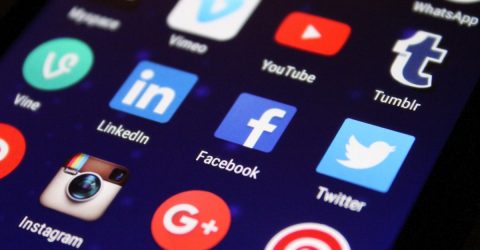Should your kids use TikTok?
The video platform faces accusations of spying for the Chinese government.

Tensions are high.
TikTok is a video based social media platform owned by a company called ByteDance. It was launched in the US in 2018 and now has over 1 billion users. It’s so popular it launches the careers of artists’ songs featured in viral videos. Lil Nas X famously became the household name he is due to going viral on the platform.
For the last year TikTok has been accused of everything from censorship, misusing data to spying for the Chinese government. Governments from around the world have even banned it!
Tensions with China are rising around the world, and not just with America. Earlier in the year there was conflict at the Chinese-Indian border. India then banned Chinese apps including TikTok after they found evidence of spying through the apps. The UK also ruled Huawei would not be used in 5G due to the risk of Chinese spying.
However, the most vocal anti-Chinese sentiment is unsurprisingly coming from America. There are long standing accusations of Chinese government production methods and IP theft, and data and privacy breaches.
US Secretary of state Mike Pompeo says the US is “certainly looking at banning TikTok”. This is because of the threat of American users’ “private information in the hands of the Chinese Communist Party”.
What does it have to do with TikTok?
To be clear, TikTok does not even exist as a product in China. So you might be confused as to why they’re under threat. Well we’ll break down the accusations facing them and the risks to you.
There is a slightly different Chinese version called Douyin which uses facial recognition software and censors videos. In 2019 it was also revealed that TikTok did censor videos that the Chinese government didn’t approve of. These videos include those that mention Tiananmen Square, Tibet, or banned religious groups.
ByteDance is run by a former Disney executive, Kevin Mayer. So why is the US so concerned? What’s more American than Disney? Recently, the US government has accused Disney of ‘kowtowing’ to Chinese influence and censorship.
The ultimate influencer.
The concern is that despite seemingly Western leadership of companies in China, the government still has influence or even control.
It might sound familiar from coverage of the Huawei-5G affair. Many suspect the Chinese government of accessing the data from Chinese tech companies due to China’s ‘National Intelligence Law’.
However, TikTok says that it keeps its data in the US and does not keep data in China.
What data does TikTok have?
TikTok’s terms and conditions state that the company collects the following personal information and potentially other information:
The scary part is that it also collects information from your linked social networks. It also collects data like your IP address, browsing history, and location data. It even harvests your friends lists from other social media platforms!
The thing is, this isn’t that unusual. Most social media platforms and apps are this invasive! Most people just aren’t aware because other platforms aren’t as transparent with their privacy policy and algorithm.
So what are the accusations?
- Stealing data: The Indian government banned over 50 Chinese apps in the wake of the border dispute. They accuse apps of “stealing and surreptitiously transmitting users’ data in an unauthorised manner to servers which have locations outside India”.
- Censorship: Leaked internal documents from 2019 show that TikTok did censor videos on the platform which referenced any civil unrest in regions such as Hong Kong and Tibet. It also censored videos referencing Tiananmen Square.
- Copying clipboards: It was recently discovered that TikTok copies your clipboard data without your knowledge (on iOS). However other apps have also been found to do this, including LinkedIn and the New York Times’ app.
Is it true?
To be fair to TikTok, some of these accusations have explanations or dubious foundations.
TikTok claim that the trouble is being stirred up by Facebook who feel threatened by it’s success. If the accusations have merit or not, the takeaway is to make sure you are informed of how much data your apps have access to. Are you comfortable with that amount of access being granted?






